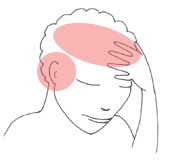Do you clench or grind your teeth at night?
Grinding or clenching your teeth at night can be very painful. The medical term for teeth grinding and clenching of the jaw is known as bruxism.
The teeth grinding action that occurs with bruxism is unconscious. This is why hypnosis for bruxism can be effective, as it too works on the unconscious level. Stress and anxiety are often linked to teeth grinding; two issues that can also be addressed with hypnotherapy.
If you suspect you are suffering from bruxism, a visit to your dentist or doctor is advised. They will be able to see if the grinding/clenching has caused any damage to your teeth.
As part of your treatment plan, you may want to explore hypnosis. Teeth grinding and jaw clenching happen unconsciously, whether you’re awake or asleep. As the action is controlled by your unconscious, hypnotherapy (a therapy that works with the unconscious mind) can use the power of suggestion to help change thought patterns that lead to bruxism.
Hypnosis puts you into a deeply relaxed state. When you are in this state, your unconscious is open to suggestion and re-patterning. Using hypnotherapy techniques, the thought patterns that lead to teeth grinding can be interrupted. Then, using suggestive language, your hypnotherapist can encourage new (more beneficial) thought patterns.
When looking at stress and anxiety, hypnotherapy can help you get to the root cause. It also supports the development of more positive coping methods, so that your mind reacts better in stressful situations. As teeth grinding can often be a reaction to stress and anxiety, using hypnosis for stress may reduce bruxism as a result.
At Lifepath Psychology our practitioners can help you reduce the stress in your life that may be causing you to clench your jaw and grind your teeth – working with you using psychotherapy and hypnotherapy to get you taking steps in the right direction towards a long restful nights sleep.
Contact Lifepath Psychology on (08) 6496 0039 for further information or to schedule an appointment.